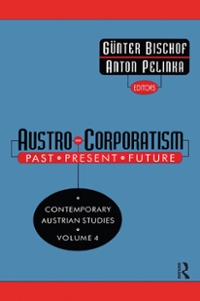Question
U.S. infrastructure performance suffers from its comparatively low quality, with consequences for businesses, workers, and travelers. U.S. passenger trains average just half the speed of
U.S. infrastructure performance suffers from its comparatively low quality, with consequences for businesses, workers, and travelers. U.S. passenger trains average just half the speed of Europe's high-speed rails. Aviation industry rankings cited by Businessiepfoweipsdo;klsa;lkcjc Roundtable put only four U.S. airports in the top fifty worldwide, with the top-ranked coming in at number thirty.
When it comes to internet access, the World Economic Forum ranks the United States eighteenth worldwide in broadband coverage. At the same time, Americanspay morethan their European peers, and receiveslower internet speeds. Some analysts attribute this to the lack of competition in most U.S. markets, which are often served by only one internet provider. Others argue that theincoherence of federal internet regulationsdiscourages telecommunicationcompanies from investing in better infrastructure, especially in rural areas where running broadband lines across vast distances is more expensive.
Much of the discrepancy between the United States and its peers can be traced to very different funding levels. On average, European countries spend the equivalent of 5 percent of GDP on building and maintaining their infrastructure, while the United States spends 2.4 percent. Other countries tout investment far higher. China's infrastructure spending averages roughly8 percent of its GDP, and that amount is only expected to increase with the country's ambitious coronavirus recovery plans. Simultaneously, China'sBelt and Road Initiativeis slated to increase the country's economic influence across Asia.U.S. infrastructure performance suffers from its comparatively low quality, with consequences for businesses, workers, and travelers. U.S. passenger trains average just half the speed of Europe's high-speed rails. Aviation industry rankings cited by Business Roundtable put only four U.S. airports in the top fifty worldwide, with the top-ranked coming in at number thirty.
When it comes to internet access, the World Economic Forum ranks the United States eighteenth worldwide in broadband coverage. At the same time, Americanspay morethan their European peers, and receiveslower internet speeds. Some analysts attribute this to the lack of competition in most U.S. markets, which are often served by only one internet provider. Others argue that theincoherence of federal internet regulationsdiscourages telecommunicationcompanies from investing in better infrastructure, especially in rural areas where running broadband lines across vast distances is more expensive.
Much of the discrepancy between the United States and its peers can be traced to very different funding levels. On average, European countries spend the equivalent of 5 percent of GDP on building and maintaining their infrastructure, while the United States spends 2.4 percent. Other countries tout investment far higher. China's infrastructure spending averages roughly8 percent of its GDP, and that amount is only expected to increase with the country's ambitious coronavirus recovery plans. Simultaneously, China'sBelt and Road Initiativeis slated to increase the country's economic influence across Asia.U.S. infrastructure performance suffers from its comparatively low quality, with consequences for businesses, workers, and travelers. U.S. passenger trains average just half the speed of Europe's high-speed rails. Aviation industry rankings cited by Business Roundtable put only four U.S. airports in the top fifty worldwide, with the top-ranked coming in at number thirty.
When it comes to internet access, the World Economic Forum ranks the United States eighteenth worldwide in broadband coverage. At the same time, Americanspay morethan their European peers, and receiveslower internet speeds. Some analysts attribute this to the lack of competition in most U.S. markets, which are often served by only one internet provider. Others argue that theincoherence of federal internet regulationsdiscourages telecommunicationcompanies from investing in better infrastructure, especially in rural areas where running broadband lines across vast distances is more expensive.
Much of the discrepancy between the United States and its peers can be traced to very different funding levels. On average, European countries spend the equivalent of 5 percent of GDP on building and maintaining their infrastructure, while the United States spends 2.4 percent. Other countries tout investment far higher. China's infrastructure spending averages roughly8 percent of its GDP, and that amount is only expected to increase with the country's ambitious coronavirus recovery plans. Simultaneously, China'sBelt and Road Initiativeis slated to increase the country's economic influence across Asia.
Question 8
1. Which of the subsequent distinguishing can happen both in __________picture-perfect opposition and in monopoly____________
2. A factory owner or a corporation should agree to take reserves that offer charges of return _____ their occasion costs of investment.
3. When price intensifications, the measure wanted commonly tends to reduction for the reason that of:
I.income effect
II.substitution effect
4. Uncertainty there are vicissitudes in factors other than a produce's own price that disturb the quantity acquired, the singularities is dubbed as
5. An increase in supply generally _____ price and _____ quantity demanded.
6. Marginal revenue (MR) is _____ when demand is elastic, _____ when demand is unit-elastic, and _____ when demand is inelastic.
7. The incidence and the influence ______of the sales taxes which are made is ________
8. The greatest indirect taxes revenue ______which are being collected can be made by__________
9. The bucket which consist of the major significance __________-currencies is named as ________
10. The direct exchange of services and goods for the another goods and services can also be termed as ______________
Step by Step Solution
There are 3 Steps involved in it
Step: 1

Get Instant Access to Expert-Tailored Solutions
See step-by-step solutions with expert insights and AI powered tools for academic success
Step: 2

Step: 3

Ace Your Homework with AI
Get the answers you need in no time with our AI-driven, step-by-step assistance
Get Started


